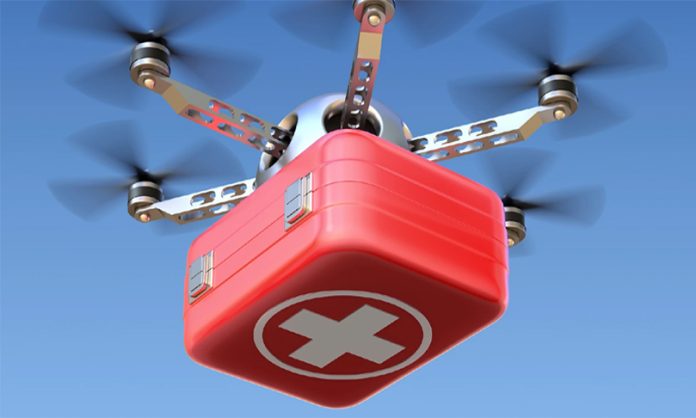In a landmark moment for Indian healthcare, AIIMS Bhubaneswar has completed the first-ever drone-assisted blood delivery in the country. This innovative step not only showcases the potential of drone technology in revolutionising medical logistics but also paves the way for improved healthcare accessibility, especially in remote areas. The inaugural flight, covering a distance of 60 km in a mere 35 minutes, delivered a life-saving blood bag to a community health centre in Khordha district. This remarkable feat highlights the efficiency and speed drones offer compared to traditional ground transportation, potentially saving crucial time in emergencies. Beyond speed, the initiative holds immense promise for overcoming geographical challenges. Drones can navigate difficult terrain and bypass traffic congestion, ensuring timely delivery of critical medical supplies even in remote locations with poor infrastructure. This is particularly significant in a country like India, where vast distances and diverse landscapes often pose logistical hurdles. The success of this pilot project extends beyond blood deliveries. The drone, equipped to carry medical supplies ranging from 2 to 5 kg, opens doors for the transportation of vaccines, medicines, and even diagnostic samples. This could be a game-changer in regions prone to natural disasters, where traditional infrastructure is often disrupted, leaving communities vulnerable to medical shortages.
The drone-based blood delivery success in Bhubaneswar holds immense potential for Jammu & Kashmir and Ladakh, where harsh winters and remote areas often pose healthcare access challenges. Drones can easily soar above snow-covered roads, delivering life-saving blood, vaccines, and medicines to villages cut off for emergency medical supplies. This technology has the power to bridge the healthcare gap between urban and remote areas, promoting equity in access to critical medical care. Embracing innovative way is an important step. Local authorities in J&K and Ladakh should seize this opportunity by collaborating on pilot projects, establishing regulations, and developing infrastructure. By embracing drones, they can revolutionise healthcare systems, ensuring even the most remote communities receive the crucial care they deserve, regardless of the season or terrain.


